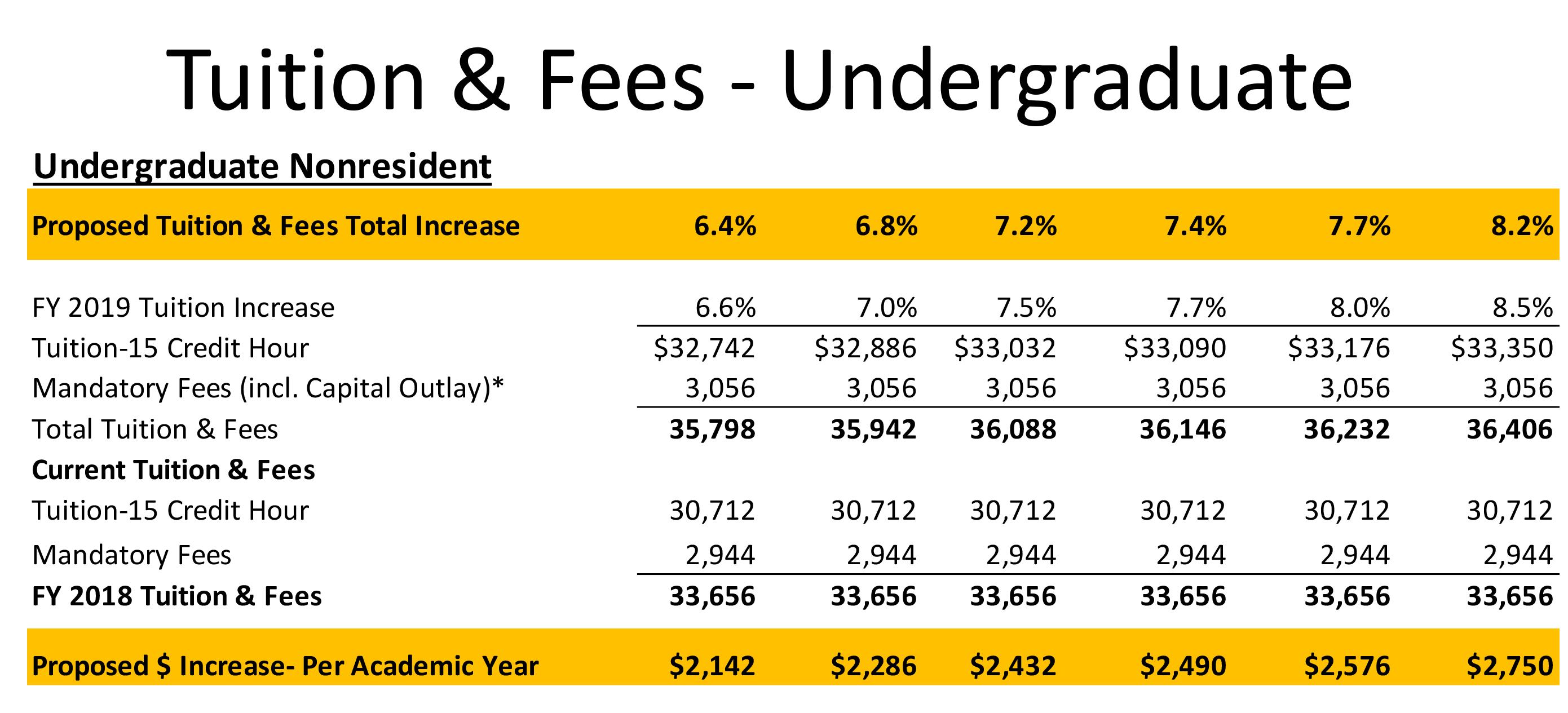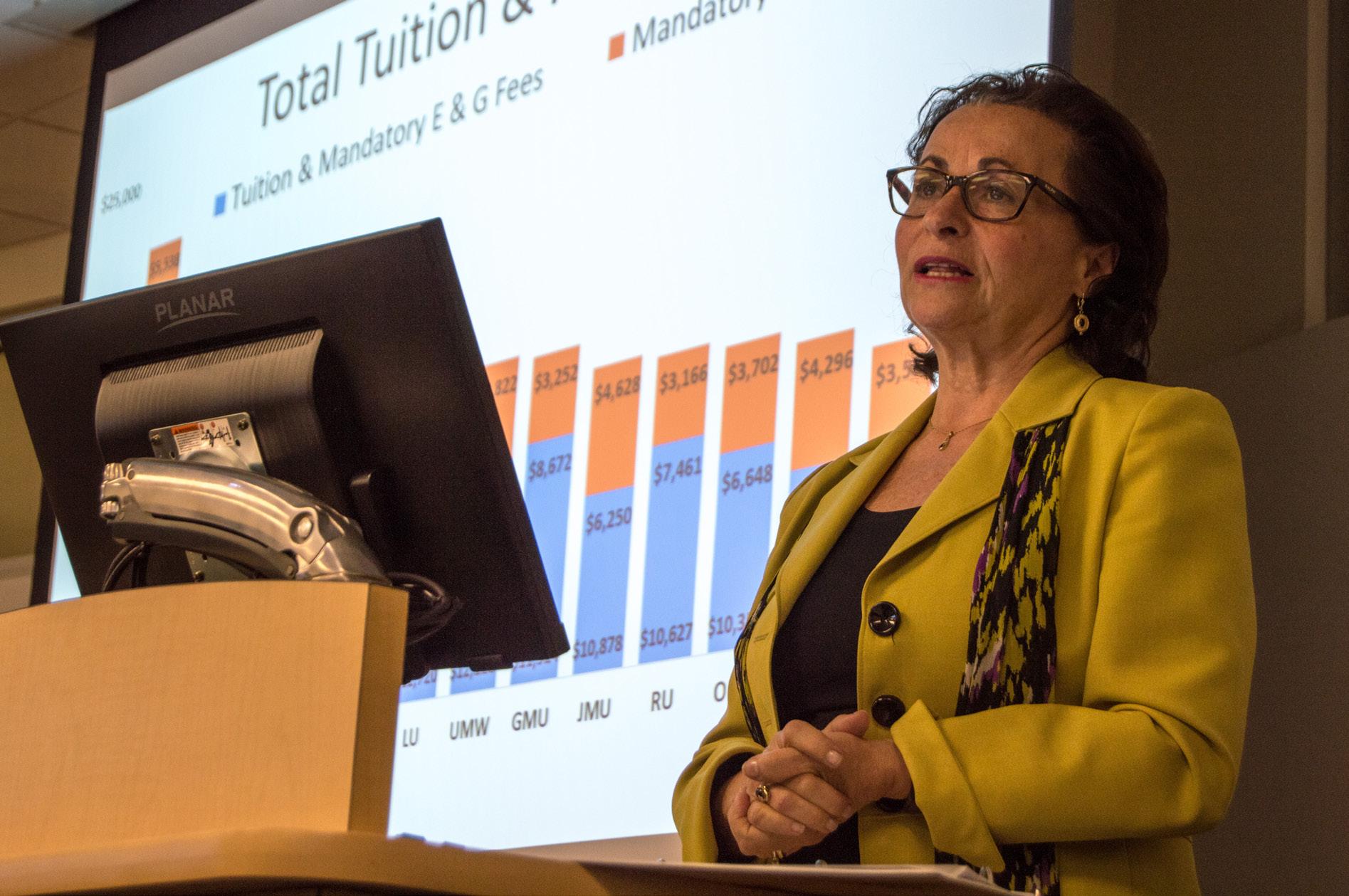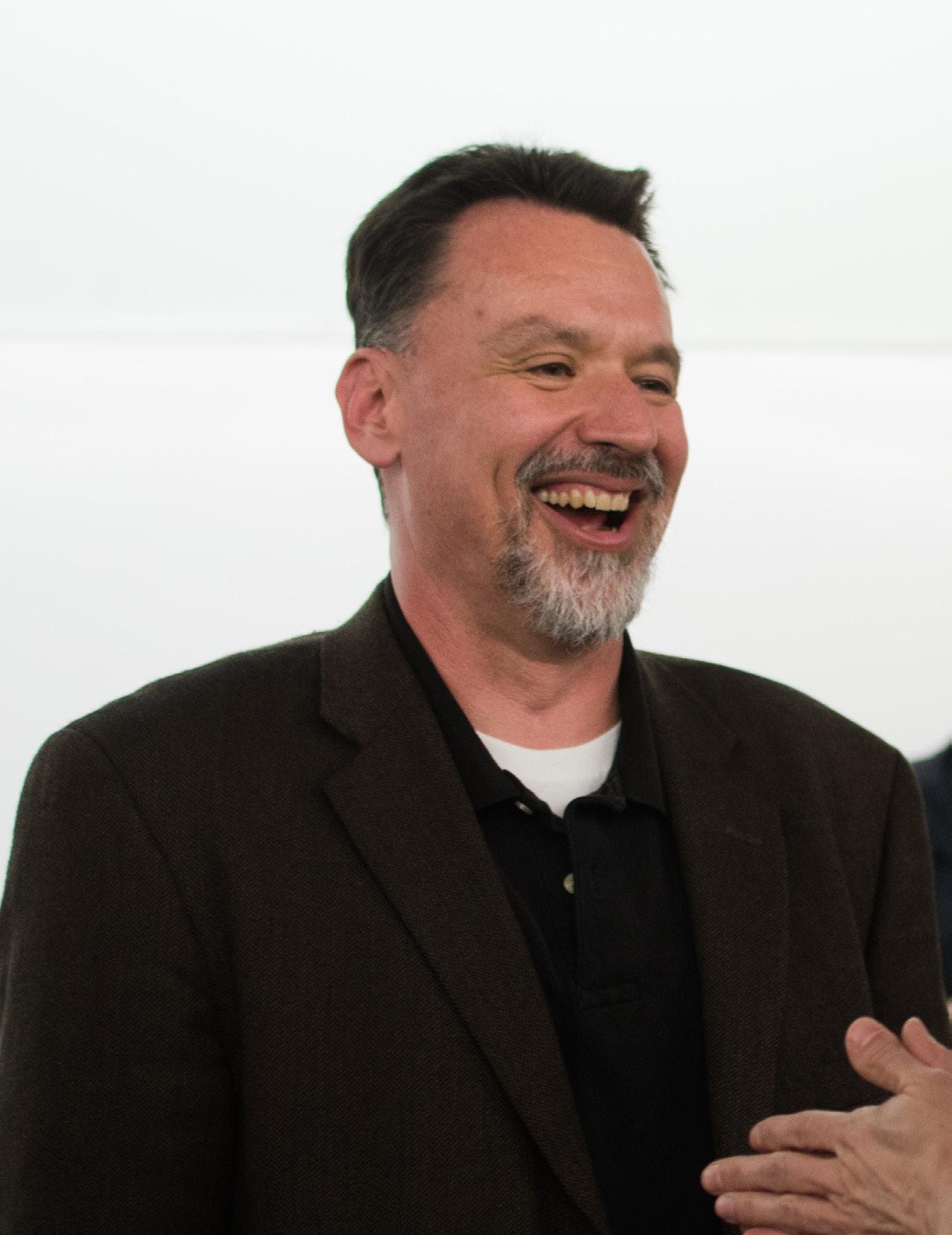
3 minute read
Administration official answers questions about proposed tuition hike at forum
—continued on page 2
VCU currently ranks No. 5 in the state for the most expensive education and general fees. The most costly school is the College of William & Mary, which is about $8,500 more expensive to attend per year.
“We compared ourselves in instruction, institutional support, academic support and student support,” Gray said. “VCU is underfunded in every category. I can tell you that the tier three schools are really prospering [because] they’re well funded.”
Some deferred initiatives due to lack of funds were improved academic advising, competitive adjunct faculty pay (and their subsequent recruitment and retention), increased instructional space and increased financial aid.
Gray said the university’s intentions are not to load excess price tags onto students, but the consequences of a lack of state funding ultimately will affect students’ pockets.
“Everything that this university has done in the past has been sensitive to putting the burden back on the student,” she said. “But, we have to start working toward where we’re going, and have reasonable increases to support the things that we deserve to have. We can’t stay mediocre.”
Increased tuition and fees and prioritized needs
Gray said the university will be proposing a 6.4 percent increase in tuition and mandatory fees for fiscal year 2019. This will result in a predicted $860 to $2,140 increase in a single undergraduate student’s expenses per year. Mandatory fees include the university technology, library, health services and student activity fees.

As for non-mandatory fees, typical housing units, dining rates and parking rates are expected to increase about 3 percent, 2 percent and 3 percent, respectively. Gray said regardless of how the state decides to allocate funds, she has to confirm the university’s 2019 budget with the Board in May.
“We don’t know what we’re getting from the state. For every percent that we raise tuition, it brings in $3 million of new money,” Gray said. “So, even if [the state] gave up $3 million … it will automatically have an impact on our tuition proposal. The problem I’m having is I have no clue what the state is doing.”
According to the presentation, among the “highest priority needs” the proposed increases will address are salary increases for university staff and faculty, strategic hires, adjunct pay increase, faculty promotions and undergraduate financial aid.
“Adjuncts are going to get the adjustment ASAP,” Gray said.
Destinee Moragne, SGA president and coordinator of Wednesday’s event, said this information is accessible, but that the administration needs to make a better effort to spread awareness about monetary issues. She suggested having professors include tuition information in their syllabi.
“[We’re] making sure that we’re being as transparent as possible and we’re increasing our communication between us, the administration and the student body,” she said. “We could work to almost put it in students’ faces so they couldn’t ignore it.”
Student organizes panel discussion on Virginia’s gerrymandering problem
LOGAN REARDON Contributing Writer
Virginia is one of the worst gerrymandered states in the country, according to OneVirginia2021, a coalition dedicated to fair, non-partisan redistricting. Gerrymandering is used by both Democrats and Republicans to increase their chance of re-election in their district.
More than 100 students and faculty attended an event on gerrymandering April 12, organized and moderated by Seth Middlecoop, a political science major.
The event sought to inform students on how gerrymandering works, what it is and why politicians do it, according to Middlecoop. He said gerrymandering is an important issue that limits the voices of voters.
“If you can’t really vote for who you want — if it’s drawn to always go to a Democrat or a Republican — it kind of limits your voice in that perspective,” Middlecoop said.
Panelists at the event included Del. Lashrecse Aird (D-Petersburg), Sen. Siobhan Dunnavant (R-Henrico), political science professor John Aughenbaugh and Brian Cannon, executive director of OneVirginia2021.
“Gerrymandering is often easy to identify when looking at state district maps,” Cannon said.
“Most districts are carved out to the current elected official. Some of these lines are abstract art that should be in the ICA.”
Brian Cannon, Executive Director OneVirginia2021

The speakers agreed redistricting should be done by independent groups. Cannon said making redistricting decisions transparent will help minimize the possibility of gerrymandering.
“If we bring these shady, back- door deals to light, less of these deals will be done,” Cannon said.
“If you’re not changing the legislators in the seats, you’re changing how those legislatures act.” Dunnavant said the problem may be solved with collaboration between legislators. However, she said many regions are so closely divided on certain issues that it is extremely difficult to represent those areas through equal redistricting.
“There is no perfect answer, or we would already be there,” Dunnavant said.
Attendee Malena Llanos said she now knows gerrymandering is something that happens on both sides of the aisle.
According to Middlecoop, the best way for students to make an impact on this issue comes down to one word.
“Activism,” Middlecoop said. “Write to your congressman and to the Virginia General Assembly, and help there to be legislation passed for the future.”
The next US census will take place in 2020. District maps around the country will be reevaluated and changed accordingly in 2021.








